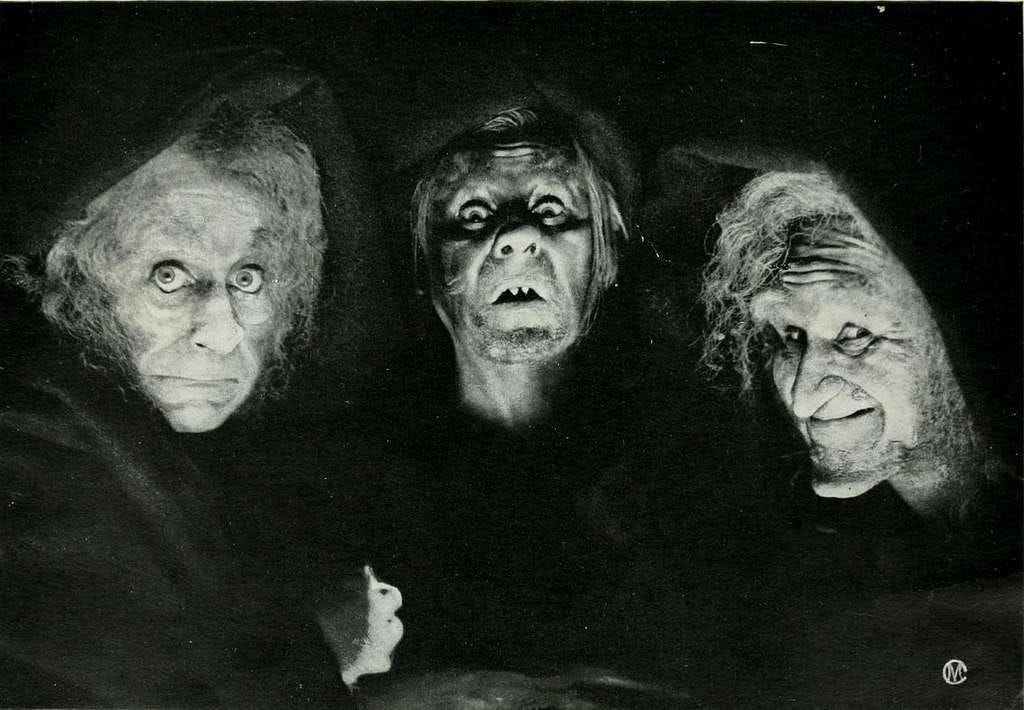Whenever the topic of great insults — or “clapbacks” as they are now known — are the subject de jour, I am reminded of the French enlightenment philosopher Voltaire (1694-1778), who penned the devilishly satirical novel Candide (1759). Born François-Marie Arouet, Voltaire was a prolific writer who produced plays, essays, poems, and other historical works, often mocking religion, intolerance, optimism and human folly.
He was also a champion of free speech at a time when free speech was a novelty. He is best known for inspiring the aphorism inscribed by author Evelyn Beatrice Hall in her biography The Friends of Voltaire. Hall channeled Voltaire when she came up with the famous quote, "I disapprove of what you say, but I will defend to the death your right to say it," a free speech shibboleth still used today.
Also in Hall’s book is the story of the infamous affront attributed to Voltaire when answering a letter from a critic. His retort was arrant and brief:
“I am in the smallest room in the house. I have your letter before me. Soon, it will be behind me.”
Brilliant.
An Art Form
I am convinced that the classic insult — sarcastic and subtle but lands like an uppercut — is an art form. The perfect bitchslap transcends the ad hominem or the clumsy “yo momma” archetype. It requires deliberation and wit, a rare but effective combination where the right syntax and word crafting induce the perfect verbal or written harpoon.
Online spaces are grounds for vile insults, where confrontation and venom often collide. The most commom attacks are hysterical rants full of invectives and cliches from ideological loonies who try to extract their pound of flesh by screaming “Nazi” … “fascist” … “Commie!” … “libtard.”
Reactionary. Lifeless. The stuff of dullards.
However, social media insults can be effective and memorable. It requires cognitive nimbleness and dexterity, a lightning-fast comeback that makes you gulp and laugh under your breath.
X is vibrant with clever retorts. Recently, someone once called a politician “a sentient landfill with Wi-Fi” during a heated thread. Another mocks someone as utterly mediocre and vapid — “you’re the human equivalent of a participation trophy” — a jibe at a culture obsessed with equity and inclusion. And there’s the pokes at class and education: “You’re what happens when a Walmart receipt gains sentience.”
Worst Insults
The worst insults—online or historical—work by targeting identity, worth, or shame. Online, they’re amplified by speed and scale: a viral post can turn a jab into a public execution.
The nastiest ones on X often come from escalation—someone starts mild, gets ratioed, and then it’s DEFCON 1. Historically, they were slower but sharper, crafted for lasting sting.
Today’s “worst” blend that old-school precision with internet chaos—personal enough to hurt, public enough to humiliate.
"Your mom should have swallowed."
Why it’s bad: It cuts straight to existential rejection—implying someone’s entire existence is a mistake. Gulp!
What prompts it: Often seen in X posts during heated personal feuds or troll pile-ons. It’s a go-to when someone’s trying to obliterate their opponent’s self-worth.
Racial/Identity Slurs (e.g., "pajeet," "hard R")
Why it’s bad: These are nuclear—they’re not just insults but weapons of hate. But the First Amendment protects so-called “hate” speech, no matter how repugnant. The platforms have Community Guidelines in place to police such speech, but invariably some of it slips through.
What prompts it: Often unleashed in anonymous spaces like X or 4chan during culture war flare-ups. They’re less about the target and more about the insulter’s bigotry or tribal signaling.
"I hope your wife brings a date to your funeral."
Why it’s bad: Savage combination of betrayal and irrelevance. It’s a slow-burn curse that lingers.
What prompts it: Typically a revenge insult after a personal betrayal—like someone airing dirty laundry online—or just peak escalation in a flame war.
Shakespeare’s Insults
Historically, though, insults had a different flavor—more theatrical, less reliant on memes or cliches.
Take Shakespeare, for example. In King Lear, Kent call Oswald “a lily-livered, action-taking, whoreson, glass-gazing, super-serviceable, finical rogue.”
That’s a mouthful, but it’s saying the guy’s a cowardly, over-eager, vain little creep.
Shakespeare’s insults are beautiful. Lyrical and poetic. And shocking. The Bard could be wontonly brutal in iambic pentameter.
“A most notable coward, an infinite and endless liar, an hourly promise breaker, the owner of no one good quality.” — All’s Well That Ends Well (Act 3, Scene 6)
“Away, you starvelling, you elf-skin, you dried neat’s-tongue, bull’s-pizzle, you stock-fish!” — Henry IV Part 1 (Act 2, Scene 4)
“Away, you three-inch fool!” — The Taming of the Shrew (Act 4, Scene 1)
“Come, come, you froward and unable worms!” — The Taming Of The Shrew (Act 5, Scene 2)
“Go, prick thy face, and over-red thy fear, Thou lily-liver’d boy.” — Macbeth (Act 5, Scene 3)
“His wit’s as thick as a Tewkesbury mustard.” — Henry IV Part 2 (Act 2, Scene 4)
“I am pigeon-liver’d and lack gall.” — Hamlet (Act 2, Scene 2)
“I am sick when I do look on thee.” — A Midsummer Night’s Dream (Act 2, Scene 1)
“I’ll beat thee, but I would infect my hands.” — Timon of Athens (Act 4, Scene 3)
“I scorn you, scurvy companion.” — Henry IV Part II (Act 2, Scene 4)
“Methink’st thou art a general offence and every man should beat thee.” — All’s Well That Ends Well (Act 2, Scene 3)
“More of your conversation would infect my brain.” — Coriolanus (Act 2, Scene 1)
“Aroint thee: go away, rump-fed runion” (slut) — Macbeth (Act 1 Scene 3)
“The rankest compound of villainous smell that ever offended a nostril.” — The Merry Wives of Windsor (Act 3, Scene 5)
“The tartness of his face sours ripe grapes.” — The Comedy of Errors (Act 5, Scene 4)
“There’s no more faith in thee than in a stewed prune.” — Henry IV Part 1 (Act 3, Scene 3)
“That trunk of humours, that bolting-hutch of beastliness, that swollen parcel of dropsies, that huge bombard of sack, that stuffed cloak-bag of guts, that roasted Manningtree ox with pudding in his belly, that reverend vice, that grey Iniquity, that father ruffian, that vanity in years?” — Henry IV Part 1 (Act 2, Scene 4)
“Thine face is not worth sunburning.” — Henry V (Act 5, Scene 2)
“This woman’s an easy glove, my lord, she goes off and on at pleasure.” — All’s Well That Ends Well (Act 5, Scene 3)
“Thou art a boil, a plague sore.” — King Lear (Act 2, Scene 2)
“Was the Duke a flesh-monger, a fool and a coward?” — Measure For Measure (Act 5, Scene 1)
“Thou art as fat as butter.” — Henry IV Part 1 (Act 2, Scene 4)
“Here is the babe, as loathsome as a toad.” — Titus Andronicus (Act 4, Scene 3)
“Thou art unfit for any place but hell.” — Richard III (Act 1 Scene 2)
“Thou cream-faced loon!” — Macbeth (Act 5, Scene 3)
“Thou clay-brained guts, thou knotty-pated fool, thou whoreson obscene greasy tallow-catch!” — Henry IV Part 1 (Act 2, Scene 4 )
“Thou elvish-mark’d, abortive, rooting hog!” — Richard III (Act 1, Scene 3 )
“Thou lump of foul deformity!” — Richard III (Act 1, Scene 2)
“Would thou wert clean enough to spit upon.” — Timon of Athens (Act 4, Scene 3)
“You scullion! You rampallian! You fustilarian! I’ll tickle your catastrophe!” — Henry IV Part 2 (Act 2, Scene 1)
… and finally …
“Villain, I have done thy mother!” Titus Andronicus (Act 4, Scene 2)
Then there’s the 18th-century gem from John Wilkes, who told the Earl of Sandwich, “You will die either of the pox or on the gallows,” to which Sandwich shot back, “That depends on whether I embrace your mistress or your principles.”
Imagine seeing these online.
Savage.
###
Jim Geschke was inducted into the prestigious Marquis “Who’s Who” registry in 2021.

















My favourite Shakespearean one: “I would challenge you to a battle of wits, but I see you are unarmed.”